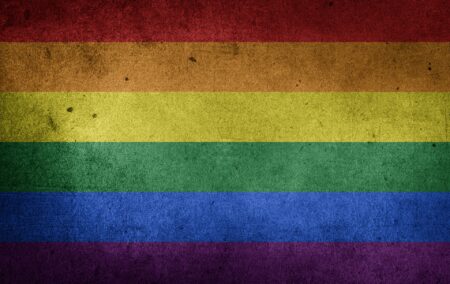A new index released by American researchers Asher Fergusson and Lyric Fergusson ranks South Africa as one of the least risky destinations for LGBTQ travellers.
The 2019 LGBTQ+ Danger Index uses eight factors to rank 150
countries in terms of how safe they are for LGBTQ tourists. Although the Index
is a useful guide to choosing which countries to visit as an LGBTQ person and
which to avoid, South Africa’s having an unusually high position as a safe
destination obscures some of the brutal reality of the experiences of LGBTQ
people in the country.
The eight factors used in the LGBTQ+ Danger Index are: Legalised same-sex
marriage; Workers’ protection; Protection against discrimination;
Criminalisation of violence; Adoption recognition; ‘Is it a good place to
live?’ – a Gallup Poll question; Illegal same-sex relationships; and
Propaganda/Morality laws.
Sweden is ranked as the safest destination, while Nigeria – where some states in the northern parts of the country impose the death penalty for homosexuality – is ranked last.
Most of the countries in the index seem to be accurately
placed. Malaysia, for example, is ranked as the 9th most dangerous
country for LGBTQ travellers, given that same-sex activity carries penalties
ranging from fines and whipping to a jail term of up to 20 years. Just a few
days after the release of the LGBTQ+ Danger Index, it was reported that a
Vietnamese gay couple were arrested for ‘immoral activities’ at their hotel in
George Town, capital of the Malaysian state of Penang.
South Africa’s is ranked 15th out of the 150 countries – beating the
likes of Australia, Austria, Germany, Ireland, Luxembourg and the United
States. At first glance, this should not be surprising. The methodology of the
LGBTQ+ Index focuses heavily on countries’ legislative frameworks and laws.
Based on these, South Africa’s having one of the most progressive Constitutions
in the world, guarantees it a high ranking. South Africa was one of the first
countries in the world to enshrine anti-discriminatory principles that include
sexual orientation, and the fifth in the world to legalise same-sex
marriage.
However, the IRR’s new report,
LGBTQ rights in Sub-Saharan Africa:
Perspectives of the region from the region, shows that analysing a
country’s laws is not always the best way to judge tolerance levels for the
LGBTQ community.
Corrective rape, where men rape lesbian women in order to ‘cure’ them, is still common in and around Cape Town. Also, less than a third of Home Affairs Offices in South Africa have marriage officials willing to marry same-sex couples.
Statistics from OUT-LGBT Well Being also show that four out of ten LGBT South Africans know of someone who was murdered ‘for being or suspected of being’ lesbian, gay, bisexual or transgender.
A study by Access Chapter 2 revealed that 86% of LGBTQ migrants, refugees and asylum-seekers interviewed in South Africa said that they were asked to prove their sexual orientation by Refugee Centre officials.
It is notoriously difficult to prove one’s sexual
orientation, and failure to do so is often the basis on which applications are
rejected. Furthermore, 56% of the respondents said they had experienced hate
crime incidents inside or outside the Refugee Centres.
There are many reasons to celebrate South Africa as an LGBTQ-friendly
destination. The recently opened Wits
Reproductive Health Institute, for example, will provide greater access to
public healthcare services for transgender people – a first of its kind on the
continent.
However, just a few kilometres away from every LGBTQ-friendly tourist hotspot in the country, a very different reality prevails, where LGBTQ people are stigmatised and ostracised, and, not infrequently, subjected to violent abuse.
Gerbrandt van Heerden is an analyst at the Centre For Risk Analysis (CRA), a think tank specialising in political risk, economic policy and scenario planning. Click here for a free 30-day trial to the CRA

